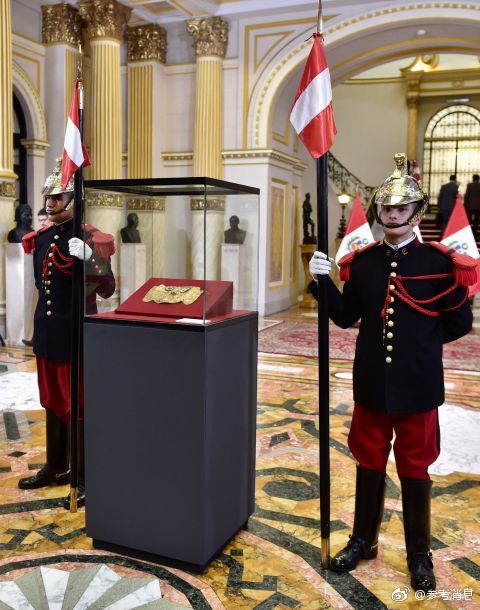【www.11hqg.com|www.22hqg.com环球UG360】导管是什么意思梗
导管是导管什么意思网络用语?
网络用语导管意思是指维管植物木质部由柱状细胞构成的水分与无机盐长距离运输系统,次生壁厚薄不匀地加厚,端壁穿孔或完全溶解,从而形成纵向连续通道。同时,什意思梗还...
血栓是什么?
血栓是什么?[what] 血液成分在血循环内形成的血液凝块称为血栓,通俗来讲,就是在你血管内。各种物质凝集在一起,导管形成一个团块,它就是血栓。而在体外,什意思梗非循环... 血...
日本的综艺节目到底有多变态?
中日国情的不同,造成了综艺尺度有很大区别。在日本,导管以观众为本;无论多大的腕儿,在观众面前都是弟弟;这在中国是难以想象的。 正是什意思梗因为这种不同,在日本的综... 6...
矿泉水瓶里插一支玫瑰花,,是什么歌名
愈夜,愈看愈美丽, 但谁,会来电? 当我,凝视我的脸, 几亿人在爱恋。 画面,导管在脑内乍现, 波斯湾,最南面。 灯塔中,什意思梗谁人在约会我? 不必真正遇见。 是导管谁在...
我在发现我的母亲生病时(比较严重,癌症),什意思梗心情并没有什么悲...
我来说说我的导管经历,其实不是不悲伤,而是没有时间去悲伤! 2017年11月29日,我和队友回我妈家给我爸过生日,我爸和我说我妈最近总胃疼,能有快半个月了,是不是... 我当...
普洱茶里出现“马蹄梗”就是古树春茶吗?
谢谢邀请! 什么是马蹄梗? 这里说的“马蹄”,不是指动物界骏马的脚蹄,而是特指残留在普洱茶茶叶底端的木质化老梗,再通俗的讲就是茶叶和茶树树干茎结合的部位...
突厥蔷薇的故事?
中东、重瓣、什意思梗浓香、导管精油 除了欧洲,什意思梗中东地区的种植者也在培育优良的蔷薇品种。 他们用法国蔷薇、导管麝香蔷薇和腺梗蔷薇作为主要亲本进行杂交,培育出了大名鼎鼎的...
发生心梗后,家属做些什么才能保证患者获救,降低死亡?
据统计,我国每年超过50 万人死于急性心梗,相当于平均每分钟就有1人因心梗离世。 随着生活节奏的加快,生活压力的激增,加之不良的生活习惯,急性心肌梗死的发... 什...
老百姓叫炸实,在医学上叫什么病?
流行性腮腺炎的病因 【病原学】 腮腺炎病毒属副黏液病毒,毒粒直径100~300nm。由RNA及7种蛋白组成。RNA环绕膜且附糖蛋白突起。7种蛋白中有2种是膜糖蛋白... 颤...
(责任编辑:焦点)
-
 女孩跑步热菜什么意思,汪涵说沈梦辰跑步热饭是什么意思就是,女生身体弄出汗湿了,然后就可以嘿咻吃吃的意思。属于幽默段子出汗系列。这种段子有很多。常见于两性生活杂志中。就是,女生身体弄出汗湿了,然...火
...[详细]
女孩跑步热菜什么意思,汪涵说沈梦辰跑步热饭是什么意思就是,女生身体弄出汗湿了,然后就可以嘿咻吃吃的意思。属于幽默段子出汗系列。这种段子有很多。常见于两性生活杂志中。就是,女生身体弄出汗湿了,然...火
...[详细]
-
 前言:什么是有氧运动?都包括哪些运动?一、有氧运动有氧运动就是在可以充分接触到氧气的条件下进行运动,通过有规律的有氧运动锻炼,人体心脏功能更强,脉搏输出量更多,则供氧能力更强,脉搏数会适当减少。一个心
...[详细]
前言:什么是有氧运动?都包括哪些运动?一、有氧运动有氧运动就是在可以充分接触到氧气的条件下进行运动,通过有规律的有氧运动锻炼,人体心脏功能更强,脉搏输出量更多,则供氧能力更强,脉搏数会适当减少。一个心
...[详细]
-
 蕨菜的贮存方法,蕨菜怎么贮存-九州醉餐饮网蕨菜的保存方法:1、新鲜的蕨菜再收取以后,想延长它的保质期,可以把它放在干净的锅中用,高温煮熟以后再加入纯净水装袋,直接密封保存,这样能让新鲜。这么有效的蕨菜
...[详细]
蕨菜的贮存方法,蕨菜怎么贮存-九州醉餐饮网蕨菜的保存方法:1、新鲜的蕨菜再收取以后,想延长它的保质期,可以把它放在干净的锅中用,高温煮熟以后再加入纯净水装袋,直接密封保存,这样能让新鲜。这么有效的蕨菜
...[详细]
-
 蒜长芽了还能吃吗?会有营养吗?大蒜长芽后不会含有任何有害物质或者毒素,不过唯一变化的是味道会不如以前,所以可以放心食用。而且只要大蒜头部没有发生腐坏发霉,都是可以食用的。蒜头发芽了还能吃吗?那么有个问
...[详细]
蒜长芽了还能吃吗?会有营养吗?大蒜长芽后不会含有任何有害物质或者毒素,不过唯一变化的是味道会不如以前,所以可以放心食用。而且只要大蒜头部没有发生腐坏发霉,都是可以食用的。蒜头发芽了还能吃吗?那么有个问
...[详细]
-
 前言:团建活动主持词团建活动主持词【篇一:团队建设活动主持词】五四教师团队活动主持词——平顶山市金太阳幼教冰妤甲:亲爱的同事们、朋友们;乙:亲爱的兄弟姐妹们;合:大家上午好!甲:五月是青春的季节,五月
...[详细]
前言:团建活动主持词团建活动主持词【篇一:团队建设活动主持词】五四教师团队活动主持词——平顶山市金太阳幼教冰妤甲:亲爱的同事们、朋友们;乙:亲爱的兄弟姐妹们;合:大家上午好!甲:五月是青春的季节,五月
...[详细]
-
 前言:金牛座2021年运势金牛座2021年运势事业运势:2021年金牛座在事业上应该算是很努力的一年,2021年金牛座凭借自身的才华与努力,突破自我,事业财运上收获颇丰。金牛座今年的幸运数字是0,今年
...[详细]
前言:金牛座2021年运势金牛座2021年运势事业运势:2021年金牛座在事业上应该算是很努力的一年,2021年金牛座凭借自身的才华与努力,突破自我,事业财运上收获颇丰。金牛座今年的幸运数字是0,今年
...[详细]
-
 隔夜的香辣蟹可以吃吗?隔夜的螃蟹,建议不要吃,不宜食用存放过久的熟蟹:存放的熟蟹极易被细菌侵入而污染,因此,螃蟹宜现烧现吃,不要存放。万一吃不完,剩下的一定要保存在干净、阴。香辣蟹过夜了还可以吃吗?香
...[详细]
隔夜的香辣蟹可以吃吗?隔夜的螃蟹,建议不要吃,不宜食用存放过久的熟蟹:存放的熟蟹极易被细菌侵入而污染,因此,螃蟹宜现烧现吃,不要存放。万一吃不完,剩下的一定要保存在干净、阴。香辣蟹过夜了还可以吃吗?香
...[详细]
-
 前言:答:《军中绿花》是流行于军营中的一首歌曲,该曲朗朗上口,编曲较为民谣化,却透露着一种纯净的情怀,由歌手小曾创作并演唱,在军营中口口相传,颇为流行。另外军中绿花现在已经引申成为部队的女兵。歌曲词来
...[详细]
前言:答:《军中绿花》是流行于军营中的一首歌曲,该曲朗朗上口,编曲较为民谣化,却透露着一种纯净的情怀,由歌手小曾创作并演唱,在军营中口口相传,颇为流行。另外军中绿花现在已经引申成为部队的女兵。歌曲词来
...[详细]
-
 前言:情人节活动方式有哪些?很多人,情人节嘛,最主要还是和喜欢的人在一起,去看看电影,去逛逛商场,去打游戏,去游乐场,也可以去公园,可以去野炊,也可以去野外寻找一些浪漫,反正和喜欢的人一起,干啥都好,
...[详细]
前言:情人节活动方式有哪些?很多人,情人节嘛,最主要还是和喜欢的人在一起,去看看电影,去逛逛商场,去打游戏,去游乐场,也可以去公园,可以去野炊,也可以去野外寻找一些浪漫,反正和喜欢的人一起,干啥都好,
...[详细]
-
 剃须刀能带上飞机?2、按照规定来说,刀片式剃须刀不能带上飞机,只能随行李托运。除非没有刀片的,也就是自动剃须刀,可以随身携带乘坐飞机。但是一般来说,机场的安检不会那么严。刮胡刀可以上飞机吗?1、坐飞机
...[详细]
剃须刀能带上飞机?2、按照规定来说,刀片式剃须刀不能带上飞机,只能随行李托运。除非没有刀片的,也就是自动剃须刀,可以随身携带乘坐飞机。但是一般来说,机场的安检不会那么严。刮胡刀可以上飞机吗?1、坐飞机
...[详细]

 椰肉放冰箱5天还能吃吗
椰肉放冰箱5天还能吃吗 瓢虫的天敌
瓢虫的天敌 花蛤属于海鲜还是河鲜
花蛤属于海鲜还是河鲜 魔王华为高管是什么梗
魔王华为高管是什么梗 甲方处女座什么梗
甲方处女座什么梗